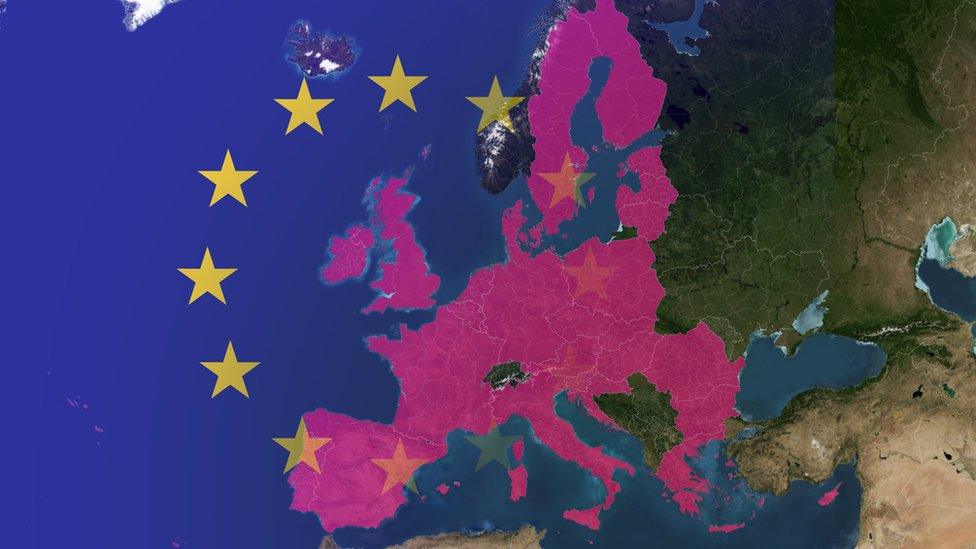Brexit: PM Theresa May chooses new cabinet ministers
- Published
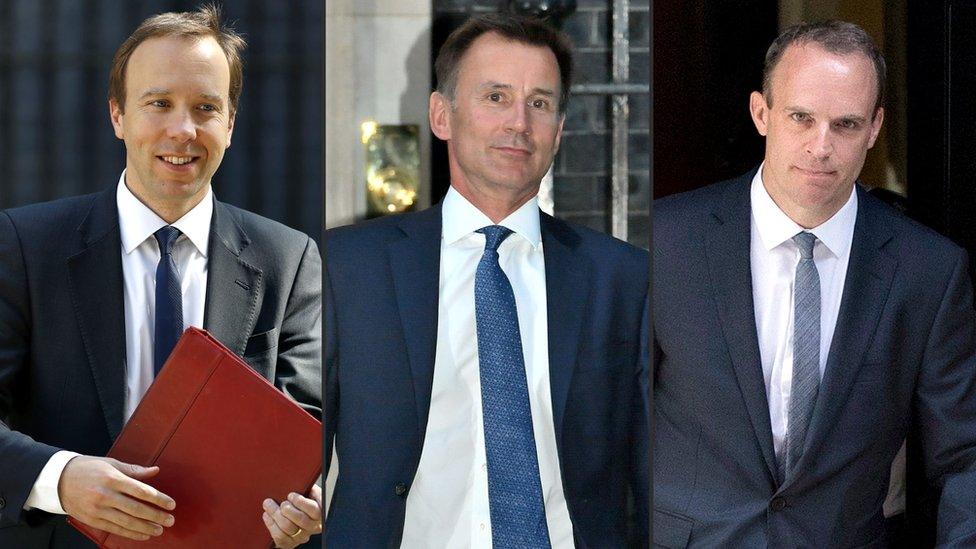
Find out below who Prime Minister Theresa May has picked as important new members of the government
There's been a lot of drama in the government over the last few days.
On Sunday night, David Davis - the minister in charge of Britain leaving the European Union (EU) left his job - and on Monday, Boris Johnson who was foreign secretary, did the same.
This means they will just be MPs - no longer part of the Cabinet, which is a special group of ministers that help the prime minister run the country.
Their resignations come just after the Prime Minister Theresa May announced her plan for Britain's exit from the European Union.
This meant that Mrs May was forced to shuffle around her top team and appoint new members. Her new cabinet will meet on Tuesday morning.
Dominic Raab will take Mr Davis's job, while Jeremy Hunt has replaced Mr Johnson as foreign secretary, moving from the position of Minister for Health.
Matt Hancock - who was the Minister for Culture - will now be the Minister for Health, Attorney General Jeremy Wright will become the Minister for Culture, and Geoffrey Cox will become the new Attorney General.
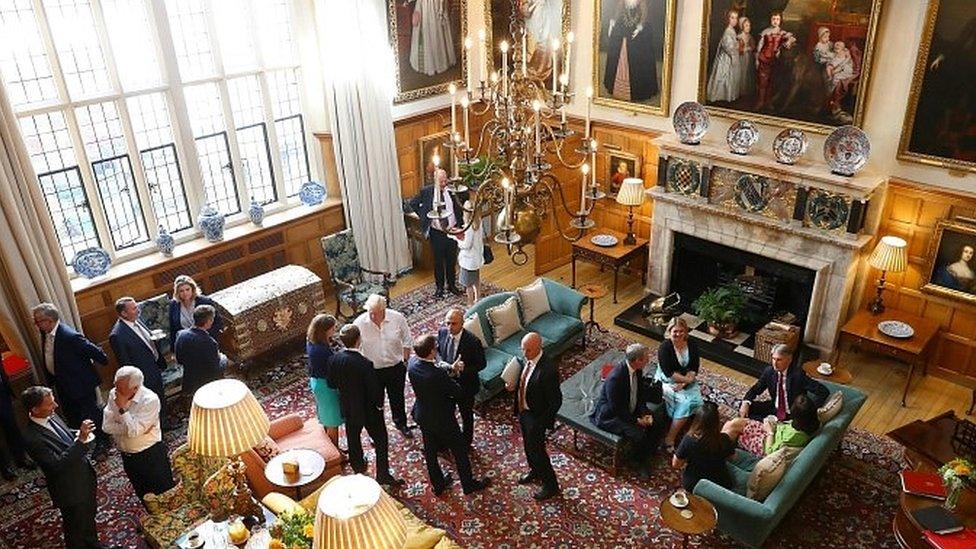
Here are some of the Cabinet meeting at Chequers on Friday
What has happened?
On Friday 6 July, the prime minister and her cabinet had an important meeting.
A cabinet is a group of senior politicians chosen by the prime minister to lead big government departments such as Foreign Affairs, Health and Defence.
The meeting with the cabinet was to decide what they wanted the UK's exit from the European Union to look like.
Lots of politicians - in both the Conservative and Labour parties - have very different views on how it should happen.
The UK is due to leave the European Union on 29 March 2019, but both the UK and the EU have not yet agreed - in particular - how trade will work between them once the UK has left.
WATCH: Brexit - what do the words mean? (January 2017)
The delay in sorting this out has been partly blamed on disagreements within the Conservative Party about how Brexit should work.
Friday's meeting lasted twelve hours and the BBC's political experts said afterwards that the most important decision was made by the prime minister, who had "picked a side".
It seems that Theresa May decided she wanted the UK to have a closer relationship with the EU than many of her colleagues did.
As a result of this, some of her colleagues - including Boris Johnson and David Davis - said they don't agree with her decision and that they don't want to be part of her government anymore.
On 23 June 2016, the UK made a historic decision. It voted to leave the European Union (EU).
More than 33 million adults voted. Around 52% of them chose to leave the group of 28 countries, while 48% wanted to stay in it.
The UK has been a member of the EU for more than 40 years, so this was an extremely important moment.
Why is this important?
The fact that ministers disagree with Mrs May's decision on Brexit makes the situation difficult for her.
Just as Mr Johnson resigned, Mrs May was preparing to go to Parliament to tell MPs about the plans that she and her cabinet had agreed to on Friday.
Some Conservative MPs who disagree with the prime minister have been making public statements about it.
This is an unusual thing to do. It has led to claims from people on all sides of the issue that Mrs May does not have enough support to make Brexit happen in a way that they might think is best for the UK.
She says that in the two years since the country voted to leave the EU she had "listened to every possible idea and every possible version of Brexit".
She told MPs that she thinks her plans are "the right Brexit".
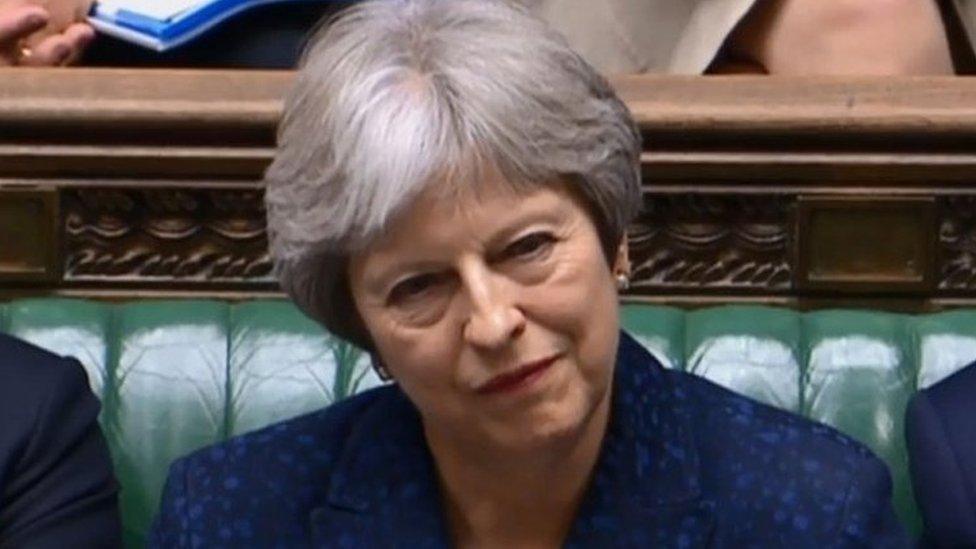
Theresa May in Parliament
What happens next?
On Thursday, every MP in Parliament will debate the prime minister's plans for Brexit.
This is when MPs from other parties like Labour and the Scottish National Party can say what they think about the plans. They can also ask the government questions about them.
After that is done, the government will have to take the plans to the EU and discuss the areas they agree and disagree on.
They will then need to try to work out the what the relationship between the UK and the EU will look like in future.
- Published17 September 2018
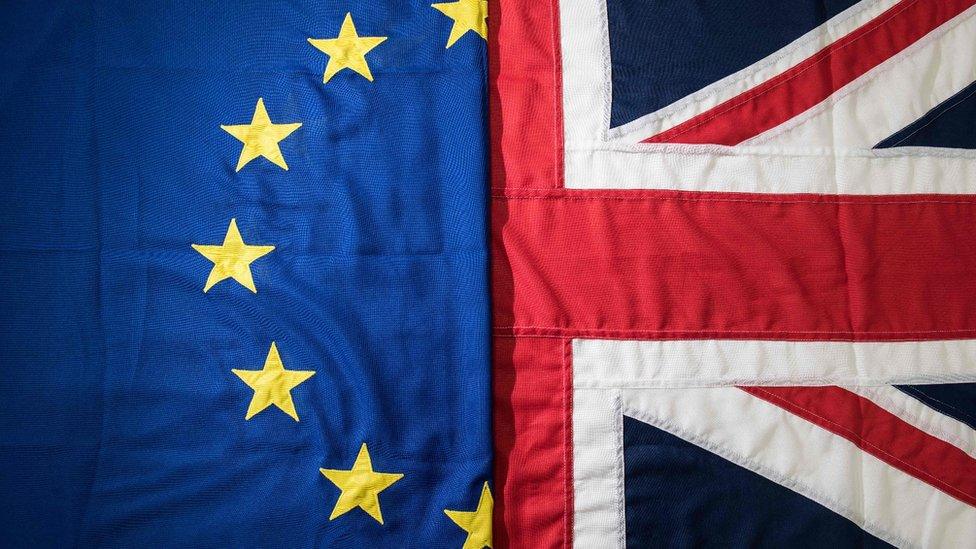
- Published24 June 2016
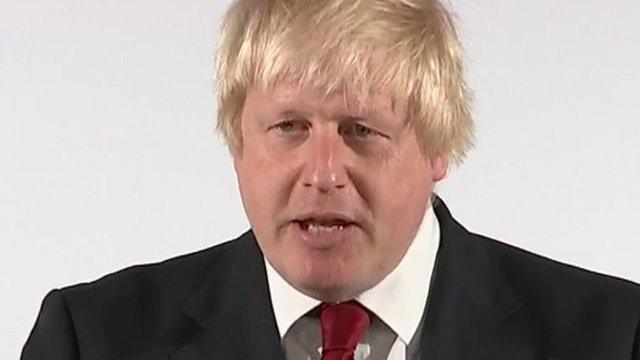
- Published8 December 2017
